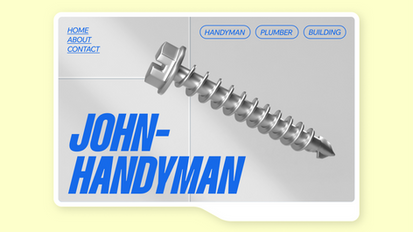Flash Photography Web Design Trend Best Practices
Flash Photography Web Design Trend Best Practices
Flash Photography Web Design Trend
In today’s digital age, having a strong online presence is crucial for the success of any small business. With the majority of consumers turning to the internet to research products and services, having a website is no longer just an option – it’s a necessity. However, many small business owners may feel overwhelmed at the prospect of creating a website, especially if they lack technical skills or the budget to hire a professional web designer. That’s where website builders for small business come in.

Flash Photography Web Design Trend in 3 Steps
Flash Photography Web Design Trend
1. Start with a unique concept
When developing a new recipe, it is important to start with a unique concept that sets your dish apart from others. Consider combining unexpected flavors, using new cooking techniques, or incorporating unusual ingredients to create a recipe that will pique your readers’ interest. You can draw inspiration from different cuisines, culinary trends, or seasonal ingredients to come up with a concept that is both original and appealing.
2. Experiment with different ingredients and flavors
Building recipes is all about experimentation and creativity. Don’t be afraid to try out new ingredients and flavor combinations to create exciting and delicious dishes. Consider incorporating fresh herbs, spices, citrus zest, or other aromatic ingredients to enhance the flavors of your recipe. Experimenting with different cooking techniques, such as grilling, roasting, or braising, can also add complexity and depth to your dishes.
3. Consider dietary restrictions and preferences
When building recipes for your website, it is important to consider the dietary restrictions and preferences of your audience. Make sure to provide options for different dietary needs, such as vegetarian, gluten-free, dairy-free, or vegan recipes. Including nutritional information, such as calorie count, macronutrients, and allergen information, can also make your recipes more accessible and appealing to a wider audience.
4. Include detailed instructions and tips
When writing out your recipes, be sure to provide detailed instructions that are easy to follow. Include step-by-step directions, cooking times, and temperatures, as well as helpful tips and tricks to ensure success in the kitchen. Consider including photos or videos to visually demonstrate each step of the cooking process, making it easier for your readers to replicate your recipes at home.
5. Test your recipes
Before publishing a new recipe on your website, be sure to test it multiple times to ensure that it is accurate and delicious. Invite friends or family members to sample your dishes and provide feedback on the taste, texture, and presentation. Adjust the seasoning, cooking times, or ingredient ratios as needed to perfect your recipe before sharing it with your audience.
6. Engage with your audience
Building recipes on your website is not just about creating delicious dishes – it is also about engaging with your audience and building a community around your food blog. Encourage your readers to leave comments, ask questions, and share their own experiences with your recipes. Consider hosting cooking demonstrations, virtual cooking classes, or recipe contests to interact with your audience and showcase your culinary skills.
1. Minimalistic Design
One popular trend in web design is minimalism. A minimalistic design relies on clean and simple layouts, with a focus on white space and essential elements. This design approach ensures that the user’s attention is directed towards the most important information on the website. Minimalistic designs are visually appealing and easy to navigate, resulting in a better user experience.
2. Bold Typography
Typography plays a significant role in web design and can greatly impact the overall look and feel of a website. Bold and eye-catching fonts can make a strong statement and help emphasize key messages. Experimenting with different font styles, sizes, and colors can add visual interest to your website and make it more engaging for visitors.
3. Interactive Elements
Adding interactive elements to your website can enhance user engagement and make the browsing experience more enjoyable. Incorporating features such as sliders, animations, hover effects, and interactive buttons can make your website more dynamic and visually appealing. Interactive elements can also help guide users through the website and draw their attention to specific content.
4. Parallax Scrolling
Parallax scrolling is a popular web design technique that creates a sense of depth and movement on a website. This effect is achieved by moving the background content at a different speed than the foreground content as the user scrolls down the page. Parallax scrolling can create a visually stunning and immersive experience for visitors, making your website more memorable and engaging.
5. Dark Mode
Dark mode has become a popular design trend in recent years, with many websites offering a dark color scheme as an alternative to the traditional light theme. Dark mode is not only visually appealing but also easier on the eyes, especially in low-light environments. Implementing a dark mode option on your website can cater to the preferences of different users and provide a more customizable experience.
6. Mobile Optimization
With the increasing use of smartphones and tablets, it is crucial to ensure that your website is optimized for mobile devices. Responsive web design allows your website to adapt to different screen sizes and resolutions, providing a seamless experience across all devices. Mobile optimization is essential for reaching a larger audience and improving user engagement on your website.
7. Custom Illustrations and Graphics
Incorporating custom illustrations and graphics can add a unique and personal touch to your website. Custom artwork can help reflect your brand’s personality and values, creating a memorable visual identity for visitors. Whether it’s hand-drawn illustrations, infographics, or animations, custom graphics can enhance the overall look and feel of your website and make it more visually appealing.
8. Video Backgrounds
Using video backgrounds on your website can make a powerful impact and capture the attention of visitors. Video backgrounds can help set the tone for your website, convey a message, and create a visually engaging experience. Whether it’s a short looped video or a full-screen background video, incorporating multimedia elements can make your website more dynamic and interactive.
9. Accessibility Features
Web accessibility is an important consideration in web design, ensuring that people with disabilities can access and use your website effectively. Integrating accessibility features such as alt text for images, keyboard navigation, and screen reader compatibility can make your website more inclusive and user-friendly. By making your website accessible to all users, you can reach a wider audience and improve the overall user experience.
10. Personalization
Personalizing the user experience can help create a more engaging and tailored experience for visitors. Implementing features such as personalized recommendations, dynamic content, and targeted messaging can make your website more relevant and appealing to individual users. By leveraging data and user preferences, you can create a more personalized and interactive experience that keeps visitors coming back for more.

What Is Flash Photography Web Design Trend?
Flash Photography Web Design Trend
In conclusion, there are many great options available for building a website, ranging from beginner-friendly platforms like Wix and Weebly to more advanced options like WordPress and Squarespace. Depending on your needs and technical expertise, you can choose the platform that best suits your goals. Whether you’re looking to create a simple personal site, a professional portfolio, or a successful online store, there’s a website building platform out there for you. With the right tools and resources, you can build a stunning website that showcases your brand and helps you achieve your online goals.


